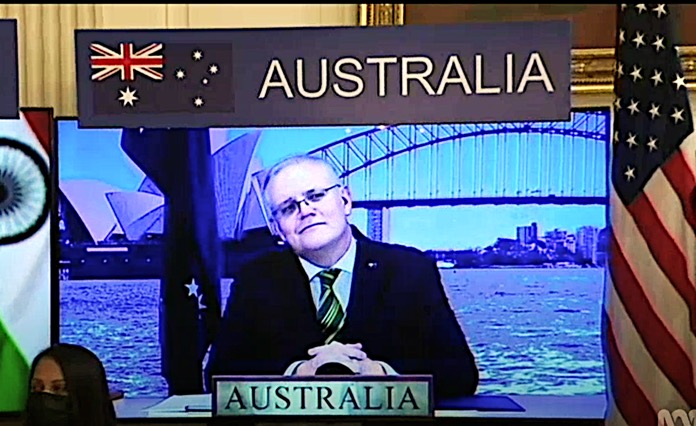Authors: R. M. Colvin and Frank Jotzo | Crawford School of Public Policy, Australian National University | Published 24 March 2021 | Australian voters’ attitudes to climate action and their social-political determinants | Published in PLOS One.
![]() A new peer-reviewed study has arguably highlighted that the Australian government will need to focus on doing more to build support for climate action. Encouragingly, the study found that there was broad support for climate action; however, this fell away when the personal costs increased, and was less evident amongst older and more conservative voters. With the study finding that strong support for climate action would increase by about four percentage points over the coming decade – as younger voters replace the old – the study’s authors conclude that while cleavages in climate attitudes in Australia are set to continue, efforts to promote climate delay are bound to have a limited shelf life as a growing majority of voters accepts the need for climate action. The problem, of course, is one of timing, an issue addressed in another new study, released on 17 March 2021, discussed here: Wake up, Mr Morrison: Australia’s slack climate effort leaves our children 10 times more work to do.
A new peer-reviewed study has arguably highlighted that the Australian government will need to focus on doing more to build support for climate action. Encouragingly, the study found that there was broad support for climate action; however, this fell away when the personal costs increased, and was less evident amongst older and more conservative voters. With the study finding that strong support for climate action would increase by about four percentage points over the coming decade – as younger voters replace the old – the study’s authors conclude that while cleavages in climate attitudes in Australia are set to continue, efforts to promote climate delay are bound to have a limited shelf life as a growing majority of voters accepts the need for climate action. The problem, of course, is one of timing, an issue addressed in another new study, released on 17 March 2021, discussed here: Wake up, Mr Morrison: Australia’s slack climate effort leaves our children 10 times more work to do.
The vast majority of Australian voters support climate action, but their degree of support varies significantly across political divides, a new study shows. The study was based on a survey that examined the views of more than 2,000 Australian voters, in the context of the 2019 Australian federal election.
How important is it for Australia to reduce greenhouse emissions?
- More than 80 per cent of those surveyed said they think it’s important for Australia to reduce greenhouse gas emissions. This includes close to 70 per cent of conservative voters (those voting for Coalition parties).
- However, fewer saw action to reduce emissions as extremely important. 73 per cent of those voting for the Australian Labor Party or the Greens saw Australian action to reduce emissions as extremely important, while only one quarter, 26 per cent, of conservative voters think it’s extremely important,” lead author of the study, Dr Bec Colvin said.
Were voters were willing to accept a personal cost to support climate action?
- A majority of voters – 72 per cent – would be willing to incur some personal cost in return for emission reductions.But while 26 per cent of progressive voters are willing to incur a significant personal cost, only 5 per cent of conservative voters feel similarly.
- “This tells us support for strong climate policy action may be limited by voters’ preparedness to incur personal costs, especially among conservative voters,” Dr Colvin said.
Was climate change a factor is determining how voters cast their vote?
- About half of Australian voters also reported that climate change was important when deciding their vote in the 2019 federal election.
- But it was the most important issue for just 14 per cent of voters.
Is there support for stronger climate action in the electorate?
- The study found younger people were more likely than older people to consider a reduction in greenhouse gas emissions important. They were also more willing to incur personal costs and to consider climate change when voting.
- “It’s simple, if Australian political leaders pursued stronger climate action, they could rest assured the majority of the voting population is likely to broadly support this,” Dr Colvin said. “This will only become more pronounced with gradual generational change.”
The study has been published in PLOS One.
Image: Australian Prime Minister Scott Morrison at a recent meeting where members of ‘The Quad’ “identified the climate challenge as a priority for the Quad and the Indo-Pacific region”.

